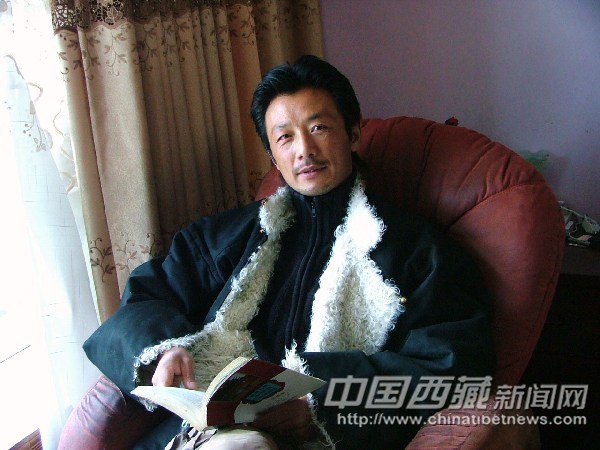Profiles
Award-winning Tibetan author tells redemption story
(Xinhua)
Updated: 2011-05-23 14:23
 |
Large Medium Small |
|
 Tsering Norbu [chinatibetnews.com] |
LHASA - In a strange dream, Nyandrak saw his deceased wife suffering endlessly in hell for her past sins, unable to become reincarnated.
When Nyandrak woke up, he bought a lamb that was about to be butchered and perceived it to be his dead wife.
Each day, Nyandrak took the lamb to prayer rites at major monasteries in Lhasa, capital of southwest China's Tibet Autonomous Region, and offered as much money as he could afford to rescue his wife from eternal torture.
As his devout exercises continued, the woman he saw in his dreams suffered less, and her face was no longer recognizable -- a sign of her reincarnation.
Nyandrak, however, soon fell ill and was diagnosed with cancer. Instead of being confined to a hospital ward, he chose to continue his routine observances with the lamb.
Tsering Norbu's novel, "The Redeemed Lamb", is a story about prayer and salvation, and a vivid description of an average Tibetan's spiritual world, according to a report by the evaluation committee of the 5th Lu Xun Literature Award, one of China's highest literary prizes.
The novel was published in 2009 and soon became a best-seller.
Last year, Norbu became the first Tibetan author to win the award, which was created in 1986 to honor renowned Chinese writer and critic Lu Xun.
Born in 1965, Norbu majored in Tibetan language at Tibet University in Lhasa. He was a reporter at the official Tibet Daily newspaper and later worked for a Tibetan literature magazine.
In an interview with Xinhua on Thursday, Norbu attributed his award to the unique Tibetan culture and religion that had been an inseparable part of his young life.
"I was brought up in a world of devout Buddhists, where prayers, long prostrations and redemptions were daily occurrences," he said.
Such an experience enables Tibetan authors to better convey the "Tibetan spirit" to their readers, he said.
While many people were pursuing wealth and material abundance in a booming market economy, Norbu and his fellow Tibetan authors were seeking to incorporate the essence of Tibetan culture and Buddhism into literary works, so that people from different cultures could learn more about Tibet, he said.
"The readers may have their own interpretations of the redeemed lamb," he said, "as a message for kindness and mercy, or as a token for man and nature in harmony."
"Such cultural elements and their effect are a major motivation for many Tibetan authors," said Norbu. "In four or five years, I trust Tibetan writers will become more influential in literary circles in China and even around the world."
Tibet-themed stories and documentaries have been selling well in the Chinese market over the past decade. While many filmmakers, reporters, backpackers and ordinary sightseers are keen to write down their accounts of their travels in the region, many Tibetan works have been translated into Mandarin Chinese for publication.
"Outsiders often describe Tibet as a mysterious land. As a Tibetan author, I hope to give a more vivid account of the Tibetans' inner world," Norbu said.
| 分享按鈕 |